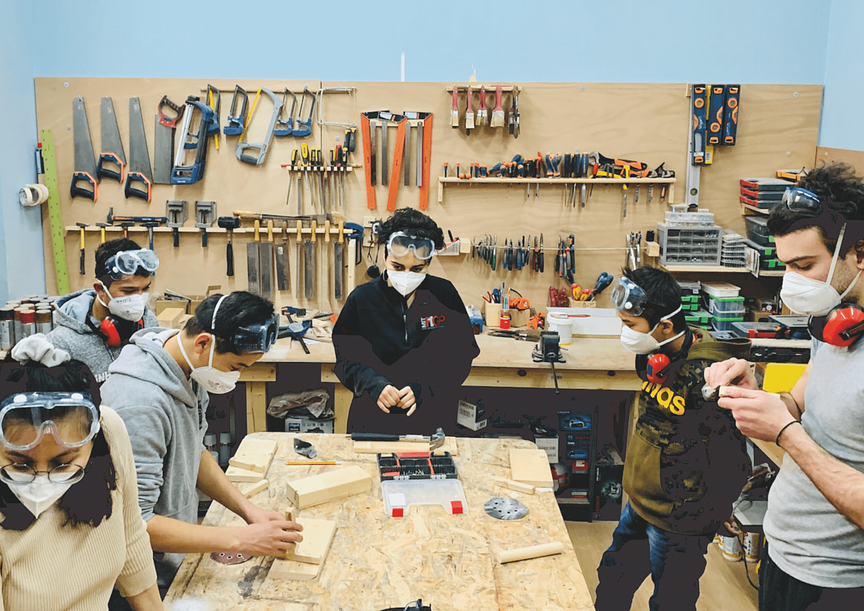Due to political instability, war, discrimination, or general lack of access to schooling, few refugee youths have had the opportunity to complete a rudimentary level of formal education. The negative consequences are potentially life-long and can create insurmountable challenges for the youth as they transition into adulthood.
The intervention is developed in partnership with MIT D-Lab at the Massachusetts Institute of Technology. The curriculum integrates MIT D-Lab's Creative Capacity Building (CCB) methodology and Faros' Holistic Care Model. CCB is a participatory design approach that seeks to include all stakeholders throughout the problem-solving process. This approach is highly effective in raising confidence, increasing their sense of agency, and promoting self-belief. The educational workshops are combined with a Holistic Care Model for psychosocial support that seeks to ensure that essential aspects of a person's life are considered significant and are taken into account during any intervention, activity, or service that is provided to the students.
Over the past four years, the Project has been established as a permanent Innovation and Training Center for Refugee Youth in Athens, Greece. During this period, educational classes have been delivered to more than 1.000 refugee children and youth. Over the following years, we envision establishing the Center as a knowledge hub providing training to civil society organizations supporting refugee youth in similar contexts. Thus, we aim to disseminate the project methodology across multiple contexts for inspiration to other humanitarian and educational actors.
Get in touch! In the project's next phase, we aim to make the curriculum and methodology available to civil society organizations.



